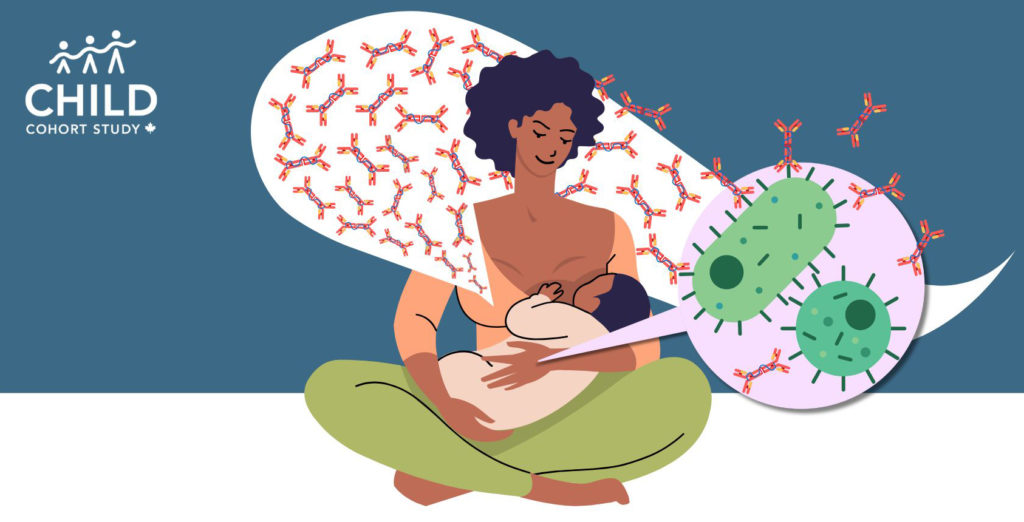
CHILD researchers have found that a common breastmilk antibody effectively targets an allergy-related bacterium in the infant gut, preventing its colonization and associated detrimental immunological effects.
The finding highlights the central, interactive roles of breastmilk and the microbiome in shaping our immune system in early life, and points to potential new approaches to preventing allergic disease.
“CHILD research once again shows us that breastmilk is ideally suited to meet the needs of the developing infant,” comments lead author Dr. Katherine Donald. “Babies get this antibody almost exclusively through breastmilk; they can’t yet produce it on their own.”
The study, led by researchers in the UBC lab of Dr Brett Finlay and published in PNAS, looked at 300 mother-child pairs participating in CHILD. They analyzed the mothers’ milk and compared this to the bacterial composition of the infants’ stool.
These analyses revealed that when mom’s milk had more secretory immunoglobulin A (SIgA), a common antibody in human milk, the infants had less of the bacterium Erysipelatoclostridium ramosum (E. ramosum) in their gut.
Experiments in the lab shed light on this relationship by showing that when SIgA binds to E. rasmosum, it reduces the ability of the bacterium to attach to the intestine—effectively taking the bacterium out of action in baby’s gut.
The researchers also showed that when E. ramosum does attach to the intestinal wall, it triggers a response in specific immune cells known as T helper 17 (Th17) cells.
“These cells are known to be implicated in asthma, allergies, and other inflammatory diseases,” observes Dr. Finlay. “Our team has shown all this before in mouse studies, where SIgA from maternal milk was found to bind to another bacterium, preventing it from triggering a Th17 response in baby mice and making those mice less susceptible in a mouse model of asthma.”
By limiting the intestinal colonization of E. ramosum, this breastmilk antibody may reduce the risk of a baby’s developing an unwanted immune response. In other words, the SIgA in moms’ milk helps ensure the healthy development of a baby’s immune system—in both mice and humans.
“We were expecting to find that SIgA was helping beneficial bacteria to flourish in the gut—something we have seen before,” notes Dr. Donald, “so it was a bit of a surprise to find instead that it was restraining or limiting this other, less helpful bacterium.”
“Scientifically, this new finding is the jump from mouse model to humans we have been looking for,” adds Dr. Finlay. “And now that we have identified SIgA as a naturally occurring tool that modulates the infant gut microbiome, we could potentially use that in the development of allergy-preventative clinical clinical measures.”
Dr. Donald agrees: “These new findings suggest potential new strategies for preventing allergies—by boosting the antibody content of mothers’ microbiome and therefore her milk through oral vaccines when needed, for example, or by producing synthetic antibodies for adding to baby formula in cases where breastfeeding is not an option.”
More: UBC | The Scientist | CHILD Key Discovery
